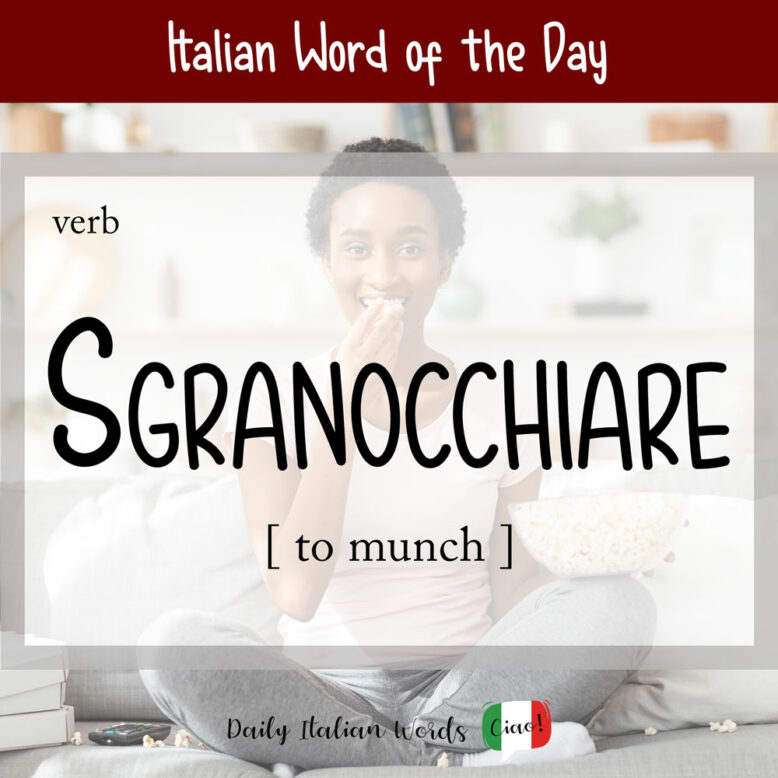An interesting verb in Italian that doesn’t really have a precise English equivalent is sgranocchiare which means to eat crunchy foods that crumble easily. Some possible translations in English include to munch, to crunch or to nibble but none of them truly encompass all facets of the word.

It is a derivative of the verb sgranare (to shell, shuck) and was modified for onomatopoeic effect.
Sgranocchiare is often used in reference to foods that people take great pleasure out of eating such as biscotti (cookies), popcorn (popcorn), noci (nuts), toast (toasted sandwich) and so on.
Il bimbo sta sgranocchiando un biscotto.
The boy is munching on a cookie.

Here is how to conjugate sgranocchiare in the present tense:
Io sgranocchio
(I munch)
Tu sgranocchi
(you munch – informal)
Lui sgranocchia
(he munches)
Lei sgranocchia
(she munches)
Lei sgranocchia
(you munch – formal)
Noi sgranocchiamo
(we munch)
Voi sgranocchiate
(you munch – plural)
Loro sgranocchiano
(they munch)
Quite often you’ll see sgranocchiare paired with the pronominal particle si (sgranocchiarsi). In this case, si doesn’t make the verb reflexive. Rather it acts as an intensifier, indicating that the action involves, concerns, benefits, or is of interest to the subject. You can say, for example:
Ho sgranocchiato un biscotto.
Mi sono sgranocchiato un biscotto.
I munched on a cookie.
The first sentence is a neutral statement, whereas the second implies that the speaker munched on the cookie because it gave him great satisfaction. A possible translation for the second phrase in English is I had a good munch on a cookie.

Heather Broster is a graduate with honours in linguistics from the University of Western Ontario. She is an aspiring polyglot, proficient in English and Italian, as well as Japanese, Welsh, and French to varying degrees of fluency. Originally from Toronto, Heather has resided in various countries, notably Italy for a period of six years. Her primary focus lies in the fields of language acquisition, education, and bilingual instruction.


